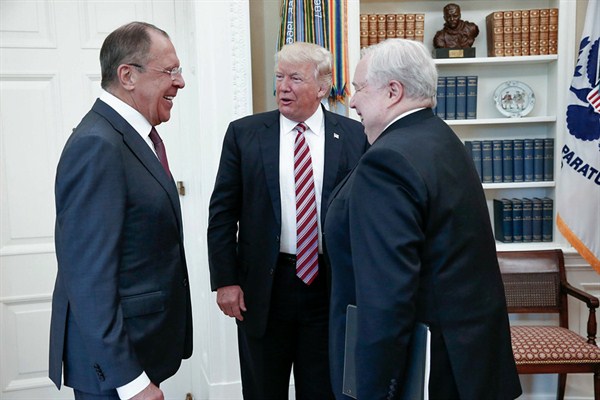In recent years, Russia has learned how to punch above its weight in the global security system, exercising influence out of proportion to its actual political, economic and military strength. It has done this through ruthless skill and willingness to adopt almost any method that advances its interests while limiting the risk.
Moscow has developed—even mastered—what national security experts call “gray zone” methods based on slowly emerging aggression that combines a wide array of techniques. These include conventional military intimidation, cyberattacks, economic warfare, political-psychological operations by Moscow’s extensive army of online trolls, and alliances with political and criminal proxies of many types. “The goal,” according to national security expert Michael Mazarr, is to “destroy the morale of adversaries” while staying below the level that would provoke outside intervention.
The specific form that gray-zone aggression takes can vary. In Ukraine, Russia relied on military means, working through pro-Moscow armed rebels bolstered by Russian military forces pretending or claiming to be Ukrainian. But Moscow also used extensive psychological, political and economic attacks. Outside the area that was once part of the Russian and Soviet empires, Moscow has few military or quasi-military proxies. Instead it relies more on cyberattacks, allies like WikiLeaks and its troll army, using them to undercut public trust in political leaders, discredit governmental processes like elections and rule by law, erode trust in the legitimate media, and erode authority structures in general. Open democracies are particularly vulnerable to this.

